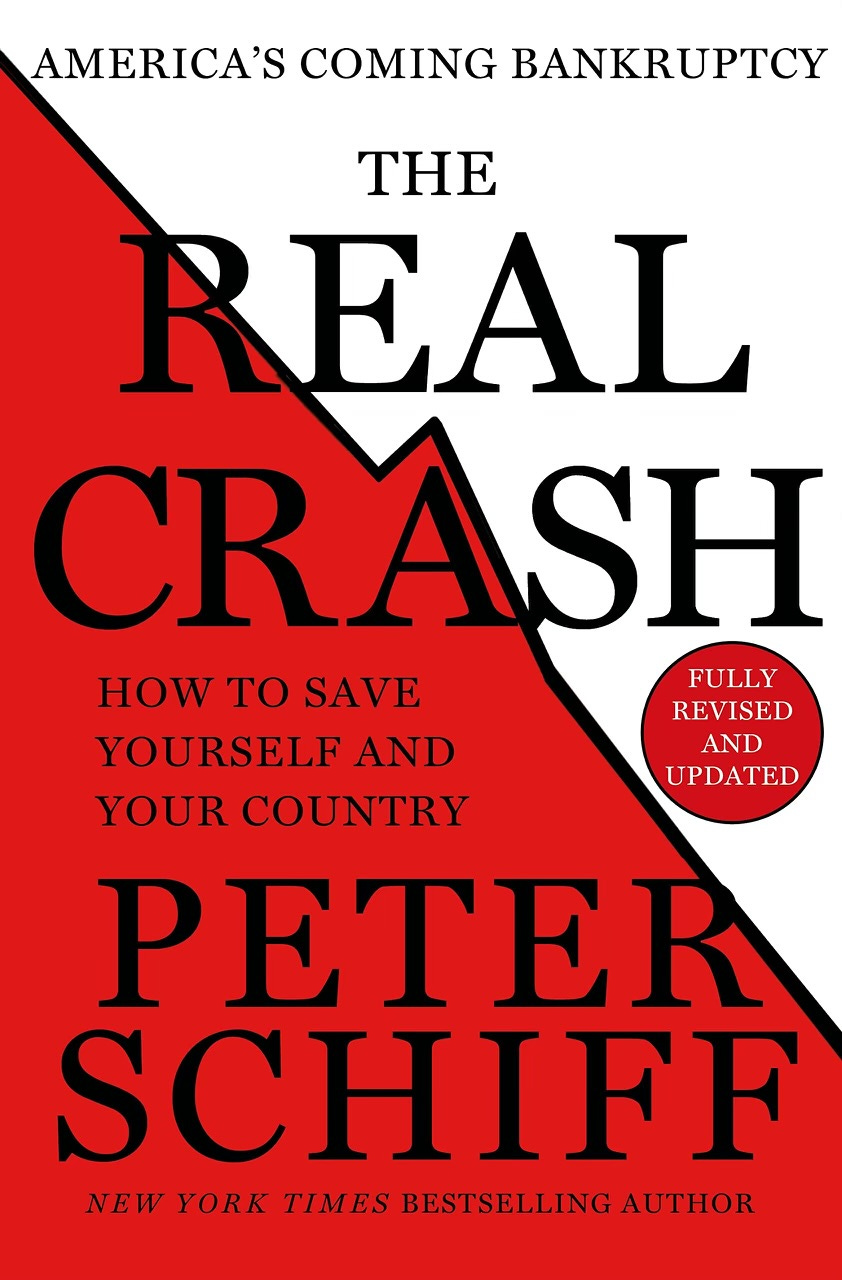The Prophet You Want to Ignore
Why Peter Schiff’s “The Real Crash” Feels Like Now
I met Peter Schiff years ago at a Freedom Fest conference. The ballroom was buzzing with libertarian firebrands, crypto evangelists, and gold-bug doomsayers.
And then there was Schiff—loud, smug, certain, and borderline insufferable. He was like the guy at the end of the bar who tells you how wrong you are about everything, yet somehow keeps making a disturbingly valid point.
He’s trashed the crypto crowd with a mixture of glee and disdain, dismissing it as digital fool’s gold while holding court on Austrian economics like Moses coming down from Mount Galt.
I found him to be, quite frankly, a know-it-all ass.
But now, I can’t stop re-reading his book The Real Crash: America’s Coming Bankruptcy. Because damn it—he may be right.
Folks, we are standing on the precipice of what feels like a slow-motion economic unraveling. The current Trump administration redux is fueling a potent mix of chaos and denial, with populist distractions taking precedence over fiscal reality.
Meanwhile, the debt bomb ticks louder. Schiff’s book, originally written over a decade ago and revised to reflect the metastasizing dysfunction, reads like a dry, uncomfortable prophecy finally arriving at our doorstep. This isn’t just an economic treatise. It’s a warning flare you may loathe, but ignore at your own peril.
Schiff’s central thesis is chilling in its simplicity: the United States is not just facing another financial crisis—we are lurching toward a sovereign debt collapse. The kind of collapse that doesn’t make headlines for a day or two, but reorders the global balance of power for a generation. The kind where the dollar, no longer a safe haven, becomes radioactive.
In The Real Crash, Schiff lays out the rot beneath the surface of our economy: decades of government spending without accountability, a tax system that punishes productivity and rewards political expediency, and a Federal Reserve that believes printing money can substitute for actual economic productivity.
His assessment of America’s addiction to cheap credit and fiscal denialism is brutally honest—and disturbingly prescient. The book was published before the COVID bailouts and multi-trillion-dollar fiscal expansions. Now, even Schiff’s dire forecasts seem like understatements.
What makes this all the more unsettling is the silence. We’re a nation staring at $35 trillion in debt, with entitlement programs on autopilot and a political class that treats budgeting like make-believe.
Schiff doesn’t sugarcoat. He believes that Medicare and Social Security are unsustainable without massive reform. Interest on the national debt is now one of our largest expenditures. No politician—left, right, or center—wants to touch the third rails of spending or taxation. So we all pretend this is fine.
But it’s not.
Reading The Real Crash in 2025 feels less like reading economics and more like peering into an oncoming storm. Schiff doesn’t just diagnose the problem—he offers the bitter medicine he believes might stave off collapse: Eliminate entire government agencies. Slash military spending that masquerades as defense but serves as geopolitical vanity. End student loan guarantees. Stop mortgage deductions. No more corporate bailouts. No more life support for zombie banks.
Radical? Yes. Necessary? Possibly. Politically impossible? Almost certainly.
But here’s where Schiff gets under your skin. For all his arrogance and condescension, he sticks to principle. He doesn’t care whether you like him. He cares whether the math adds up. And in an era of economic gaslighting—where we’re told deficits don’t matter, that more spending will somehow reduce inflation, that the dollar will always be king—his cold rationalism hits like a slap across the face.
I still think he’s likely wrong about crypto. Dismissing decentralized digital assets as fads ignores the potential of financial sovereignty in a collapsing fiat world. But even there, I’ve come to respect his consistency. Schiff believes in gold, in hard assets, in things that can’t be conjured out of thin air. He’s not trying to be trendy. He’s trying to be right.
The most terrifying chapter of The Real Crash isn’t the economic projections—it’s the sense that most in power will listen. We are careening toward a reckoning that most Americans aren’t even remotely prepared for. And Schiff, for all his bluster, is sounding the alarm in ways few dare.
Do I agree with every word? No. His stance on birthright citizenship felt jammed in, a jarring digression from an otherwise laser-focused narrative. His FairTax proposal, while intriguing, may not survive the political bloodbath required to implement it. But those are details.
The big picture? The rot is real. The crash is coming. And we are not ready.
Peter Schiff may be an arrogant son of a gun, but he’s not stupid. And in times like these, it’s worth listening to people who’ve seen the punch before it’s thrown—even if their tone makes you want to throw one back.
So yes, I’m re-reading The Real Crash—not because I enjoy being alarmed, but because it would be foolish not to be.
If you are finding “Great Books, Great Minds” to be a valuable resource in your polymathic reading journey, then we invite you to join us as a paid member supporter. Or feel free to tip me some coffeehouse love (dirty chai’s are my jam) here if you feel so inclined.
Your contributions are appreciated!
Every bit counts as I strive to deliver high quality feature articles into your inbox on a regular basis. Never any paywalls, just the opportunity to foster community, connection, and conversation one book at a time.






